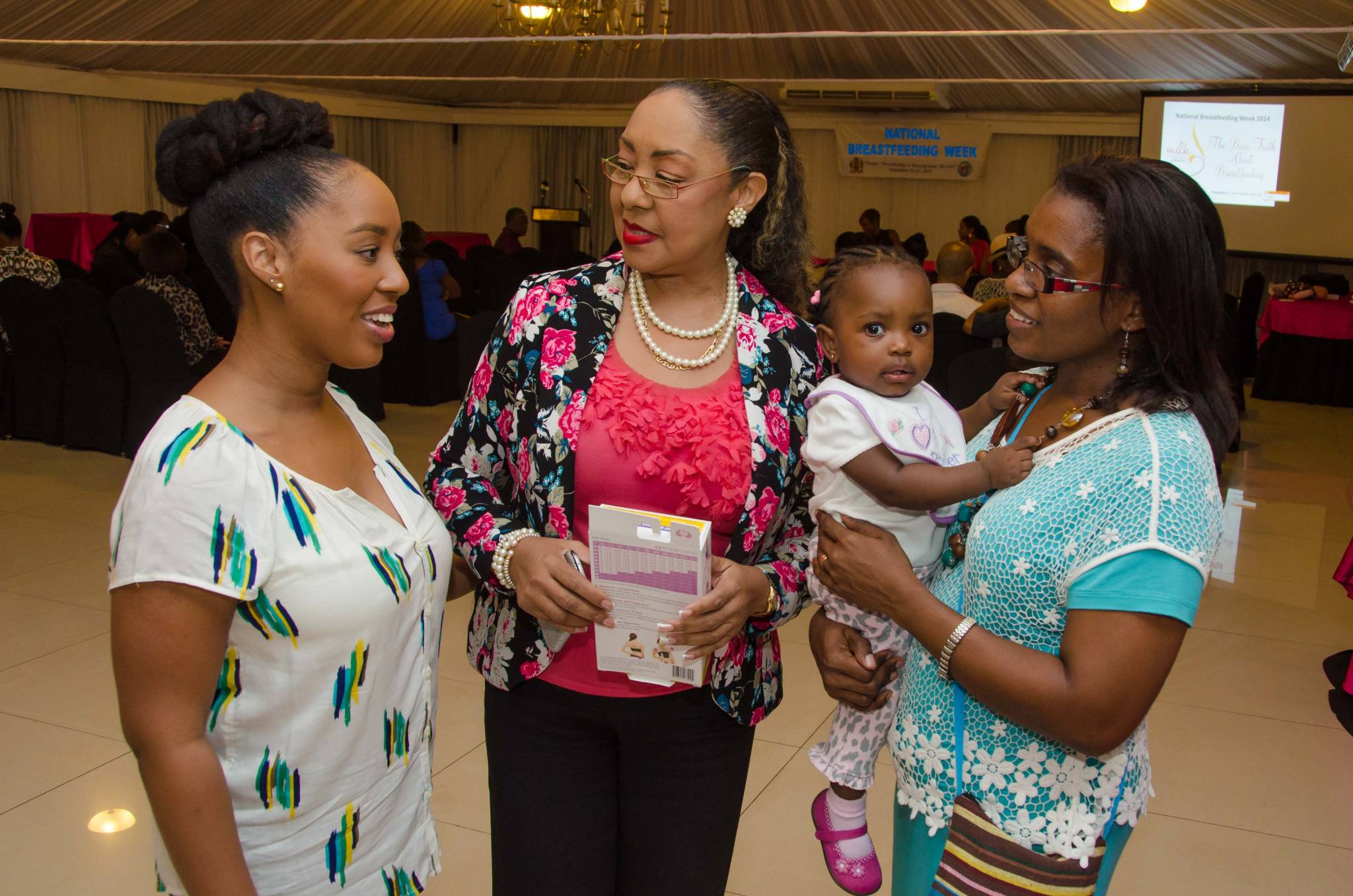Mothers Urged to Breastfeed for Six Months
By: , October 1, 2014The Key Point:
The Facts
- Director of Nutrition in the Ministry, Sharmaine Edwards, speaking at a recent Breastfeeding Week seminar, explained that food security is becoming more of a concern, based on the increase in worldwide hunger since 2008, as a result of skyrocketing food and fuel prices
- The Director highlighted the fact that “19 per cent of deaths and chronic diseases can be prevented by infant and young child feeding practices.”
The Full Story
The Ministry of Health is urging mothers to breastfeed their babies exclusively up to the age of six months where possible, particularly in light of current economic conditions.
Director of Nutrition in the Ministry, Sharmaine Edwards, speaking at a recent Breastfeeding Week seminar, explained that food security is becoming more of a concern, based on the increase in worldwide hunger since 2008, as a result of skyrocketing food and fuel prices.
“Mothers need to remember that the economic climate is undermining food security, yet the breast is there ready with milk anytime, any place, at the right temperature with all the right nutrients for the infant,” she explained. The Director pointed out that there is no need to incur additional cost by purchasing formula for a baby that is under the age of six months, once the necessary conditions are right.
Mrs. Edwards said that another important reason to maintain a recommended breastfeeding regimen is to build resistance to diseases later in life.
She pointed out that according to both the United Nations Children’s Fund (UNICEF) and the World Health Organization (WHO), optimal infant feeding is the single most important intervention in public health that can impact on disease outcome and survival.
The Director highlighted the fact that “19 per cent of deaths and chronic diseases can be prevented by infant and young child feeding practices.” Mrs. Edwards said that in Jamaica there are some poor feeding practices, including introducing babies to solid food from as early as 6 days old.
“Although many campaigns have taken place outlining good feeding practices, we are still below the international breastfeeding targets. We have achieved the international target for six weeks, which is 50 per cent; however, we are at 35 per cent for three months and at 23.8 per cent for six months,” she added.
Mrs. Edwards noted that the rate for 6 months has improved over the 15 per cent recorded in 2005.
Pointing to the new Infant and Young Child Feeding Policy that was recently passed by Cabinet, the Director said the Ministry believes the policy will help to change the environment.
She cited inadequate support in the workplace and inappropriate marketing practices for breast milk substitutes as some barriers to infant feeding, adding that the policy will put some measures in place to monitor what is happening in that regard.
Participating in the seminar were expectant, nursing and more experienced mothers, fathers, health professionals, and special interest groups.




